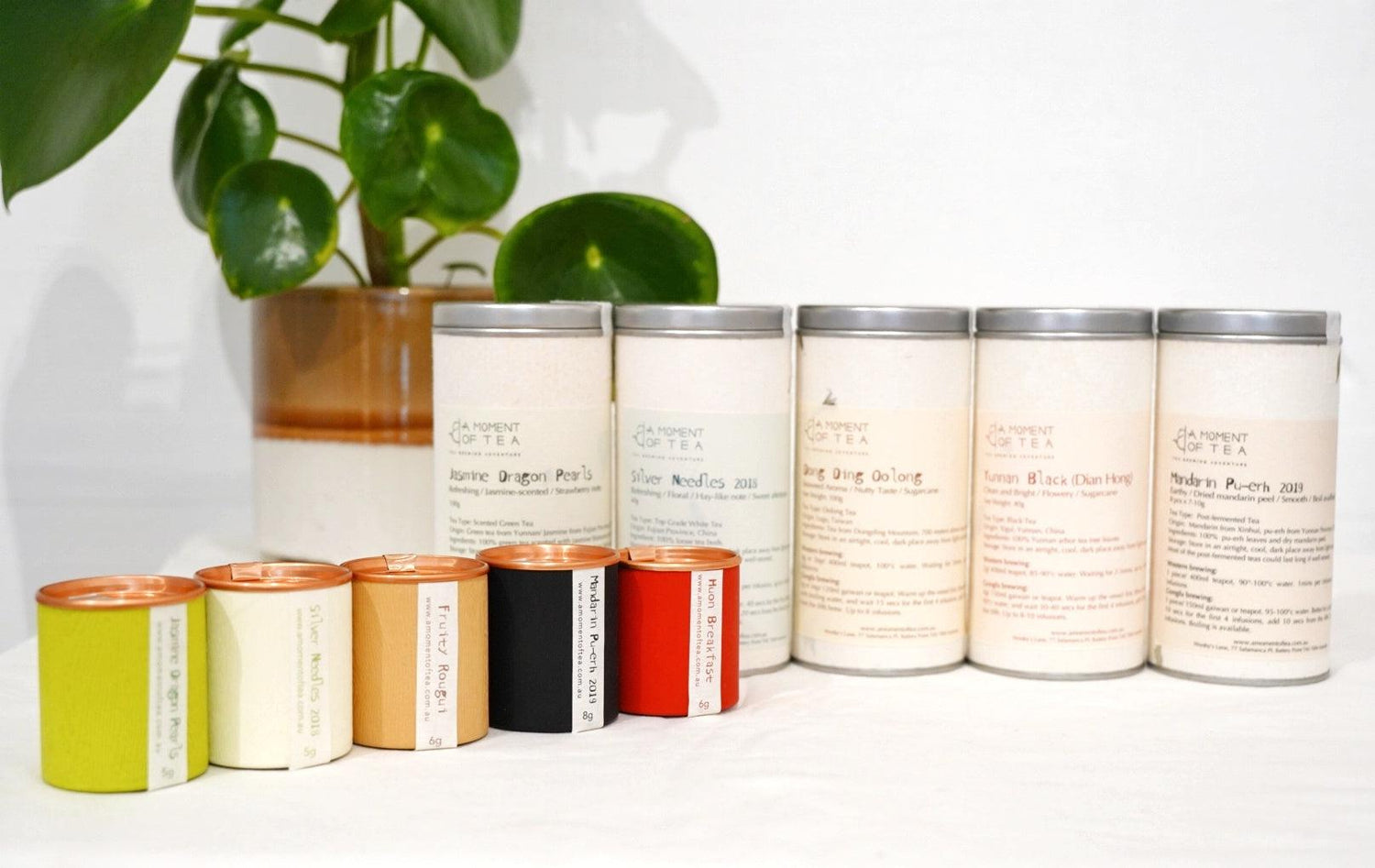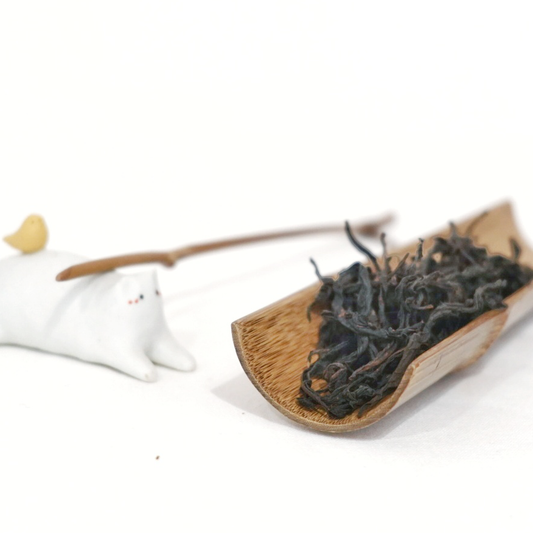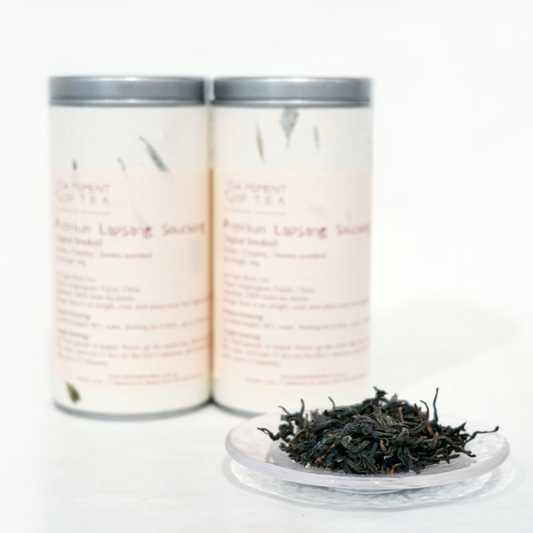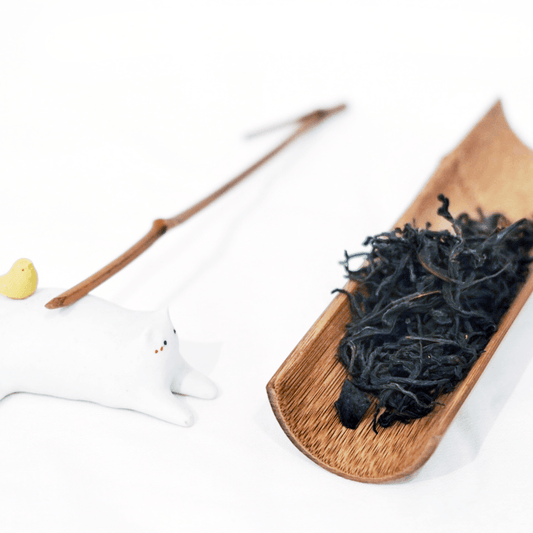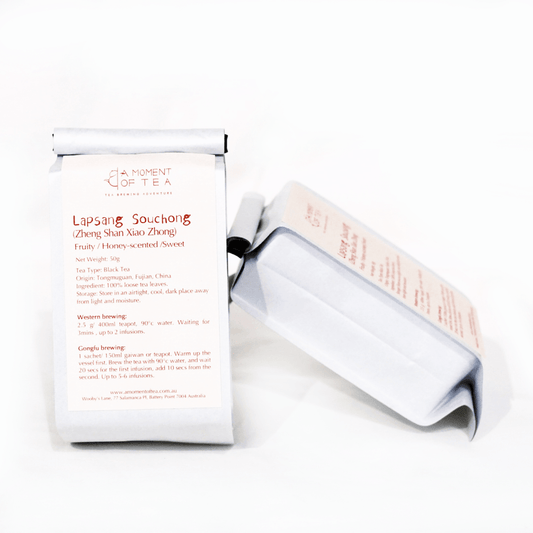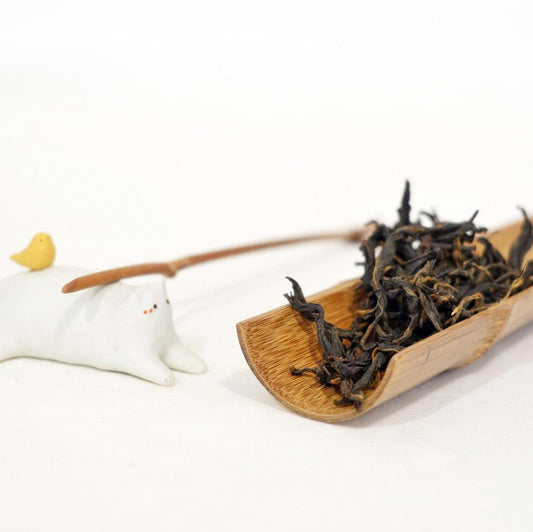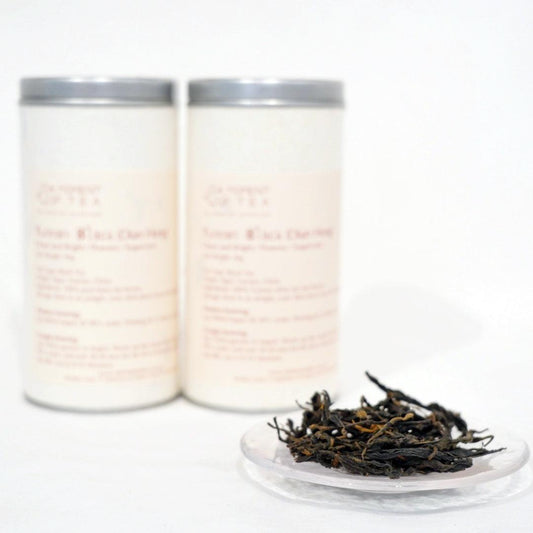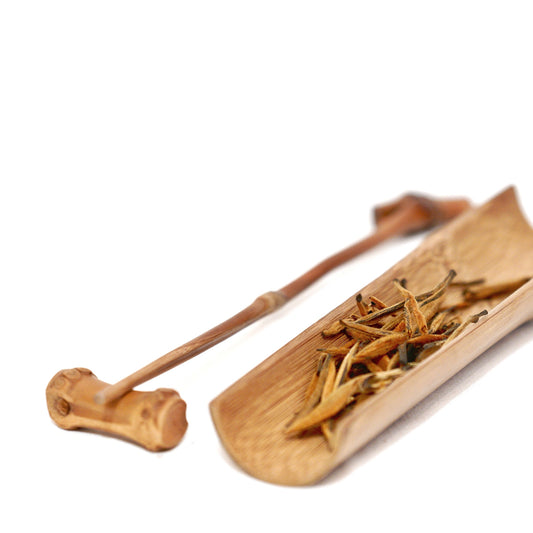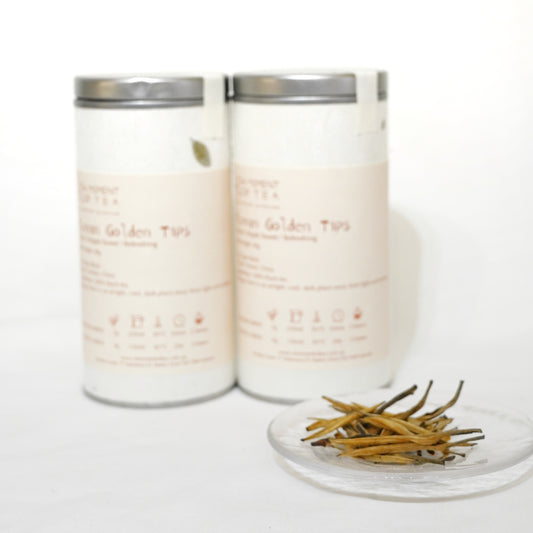Black Tea
-
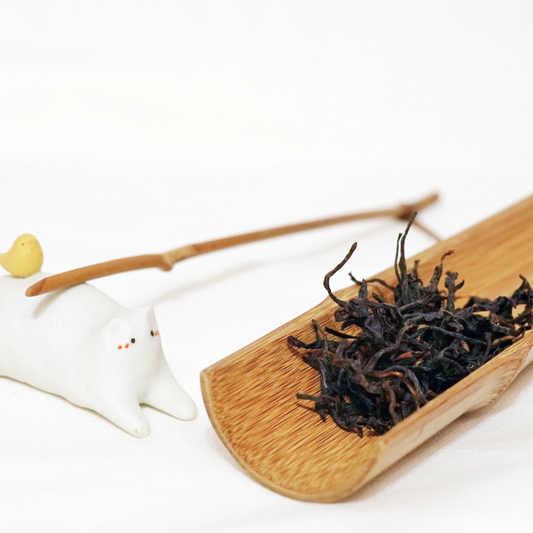
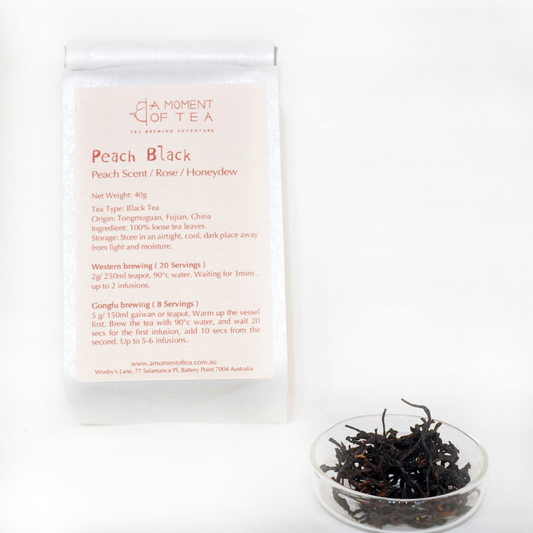 Sale
SalePeach Black Tea
1 reviewRegular price From $7.00Regular priceUnit price / per$32.00Sale price From $7.00Sale -
Lapsang Souchong Original Smoked
5 reviewsRegular price From $10.00Regular priceUnit price / per -
Lapsang Souchong Floral
No reviewsRegular price From $7.00Regular priceUnit price / per -
Yunnan Black Tea (Dian Hong)
No reviewsRegular price From $8.00Regular priceUnit price / per$43.00Sale price From $8.00Sale -
Yunnan Golden Tips
1 reviewRegular price From $8.00Regular priceUnit price / per
Black tea is the most oxidised style of tea, which gives it deeper colour and bolder flavour than green or white teas. Our collection focuses on Chinese black teas, which tend to be naturally sweeter and smoother than the blended black teas most Australians grew up with.
From Fujian province, we carry two styles of Lapsang Souchong — the traditional pine-smoked version with its distinctive campfire character, and a non-smoked floral version that's lighter and fruit-forward. We also have Peach Black Tea, made from the Golden Peony cultivar, which has a natural peach aroma without any added flavouring.
From Yunnan province, our Dian Hong is a malty, forgiving everyday black tea from trees around 80 years old, and the Golden Tips is a bud-only tea with a more delicate, floral character.
All our black teas are high-caffeine and work well as morning teas. If you're not sure where to start, pick up a couple of samples and see what suits your taste — or visit our Salamanca Tea Bar in Hobart where you can try any of them before you buy.
